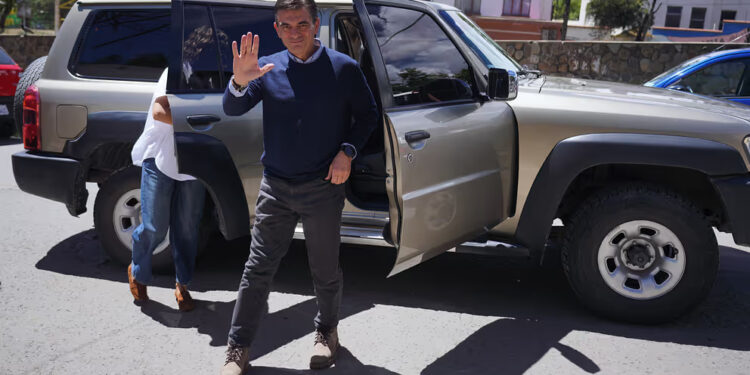Bolivia has entered a new political era. Centrist senator Rodrigo Paz Pereira has won the presidency with around 55 per cent of the vote, defeating former president Jorge “Tuto” Quiroga in a decisive runoff held on 19 October 2025. The victory marks the end of nearly twenty years of dominance by the left-wing Movimiento al Socialismo (MAS), which has governed the country since 2005 under Evo Morales and Luis Arce.
A landmark election
The first round of voting in August had already signalled discontent with the status quo. Paz, previously regarded as an outsider, secured roughly a third of the votes, while MAS’s candidate collapsed to a historic low. The runoff confirmed the direction: voters opted for a centrist alternative promising moderation, reform, and an escape from prolonged economic hardship.
Economic strain and voter fatigue
Bolivia’s economy has faced mounting pressure in recent years. Inflation is estimated to have surged above 20 per cent, while foreign-exchange reserves have fallen to critically low levels. Fuel shortages, dollar scarcity, and widespread informal employment—covering more than 80 per cent of the workforce—have eroded public confidence. The combination of these factors, together with internal divisions within MAS, led to one of the most dramatic political realignments in Bolivia’s modern history.
The centrist formula
Rodrigo Paz, the son of former president Jaime Paz Zamora, built his campaign around a message of “capitalism for all”. His platform blends market-friendly policies with continued support for social programmes, aiming to stabilise public finances while protecting vulnerable groups. The appeal cut across traditional divides, attracting both urban moderates and disillusioned rural voters.
The road ahead
Paz is set to take office on 8 November. His first challenge will be economic recovery. Plans include phasing out fuel subsidies, reforming the exchange-rate system, and attracting foreign investment in mining and energy. He has also indicated a desire to rebuild ties with the United States, signalling a departure from MAS’s regional alliances. However, his centrist alliance lacks a congressional majority, meaning progress will depend on delicate coalition-building.
Risks and resistance
While the election has been widely hailed as a democratic milestone, it opens a period of uncertainty. MAS retains deep support among Indigenous and rural communities, and protests are possible if the government’s reforms are perceived as favouring the elite. Economically, Bolivia’s recovery will be fragile—reserves are thin, inflation remains high, and the informal sector dominates. Without visible improvements, optimism could quickly fade.
A turning point for South America
Bolivia’s shift resonates beyond its borders. With Paz’s victory, the country joins a broader regional trend towards centrist, market-oriented governance. For investors and neighbours alike, the result may herald renewed stability and openness, but for Bolivians, the real test lies in whether change brings tangible progress.
Newshub Editorial in South America – 20 October 2025




Recent Comments